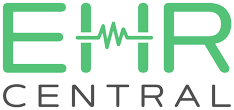Future Trends in EHR: Navigating the Road Ahead
In the ever-evolving landscape of healthcare technology, Electronic Health Records (EHR) have become indispensable tools for modern healthcare delivery. As we look ahead to the future, several key trends are poised to shape the evolution of EHR systems, revolutionizing the way

healthcare is delivered, managed, and experienced. Let’s navigate the road ahead and explore some of the most significant future trends in EHR.
1. Interoperability and Data Exchange
Interoperability remains a cornerstone for the future of EHR systems. The seamless exchange of patient data across disparate systems and healthcare organizations is essential for improving care coordination, enhancing patient outcomes, and reducing medical errors. In the coming years, we can expect further advancements in interoperability standards and technologies, enabling more efficient data exchange while prioritizing patient privacy and data security.
2. Artificial Intelligence (AI) Integration
AI holds immense potential for transforming EHR systems from passive repositories of data into intelligent platforms that can assist clinicians in decision-making, streamline workflows, and personalize patient care. In the future, we anticipate deeper integration of AI technologies such as machine learning, natural language processing, and predictive analytics into EHR systems, empowering healthcare providers with actionable insights and predictive capabilities for better patient outcomes.
3. Telehealth Integration
The COVID-19 pandemic has accelerated the adoption of telehealth, and its integration with EHR systems will continue to be a significant trend in the future. Seamless integration of telehealth functionalities into EHR platforms will enable healthcare providers to deliver care remotely, facilitate virtual consultations, monitor patients remotely, and engage with patients outside traditional clinical settings. This trend will not only improve access to care but also enhance patient engagement and satisfaction.
How EHRCentral enhances your healthcare practice?
4. Enhanced Data Analytics and Population Health Management
The future of EHR will be characterized by advanced data analytics capabilities that go beyond descriptive analytics to encompass predictive and prescriptive analytics. Healthcare organizations will harness the power of big data analytics within EHR systems to identify trends, predict health outcomes, and stratify populations for targeted interventions. This shift towards proactive population health management will enable healthcare providers to improve health outcomes, reduce costs, and optimize resource allocation.
5. Patient-Centric Design and Engagement
Patient engagement will be at the forefront of future EHR trends, with a focus on designing systems that prioritize the needs and preferences of patients. EHR systems will evolve to include patient-centric features such as interactive patient portals, mobile apps for accessing health information, and tools for self-management and remote monitoring. By empowering patients to actively participate in their care, future EHR systems will foster collaboration, improve adherence to treatment plans, and ultimately enhance health outcomes.
6. Data Privacy and Security
As EHR systems become more interconnected and data-driven, ensuring the privacy and security of patient information will remain paramount. Future trends in EHR will include robust encryption protocols, advanced authentication mechanisms, and blockchain-based solutions to safeguard sensitive health data from cyber threats and unauthorized access. Healthcare organizations will need to prioritize investments in cybersecurity infrastructure and compliance measures to maintain trust and integrity in EHR systems.
Conclusion:
In conclusion, the future of EHR is bright and full of possibilities. By embracing emerging technologies, fostering interoperability, prioritizing patient engagement, and safeguarding data privacy, the road ahead promises to revolutionize healthcare delivery and improve patient outcomes. As we navigate these future trends in EHR, let us remain committed to harnessing the transformative power of technology to create a healthier, more connected world.
This content provides a comprehensive overview of future trends in Electronic Health Records (EHR), exploring key themes such as interoperability, AI integration, telehealth, data analytics, patient engagement, and data privacy. It offers insights into how these trends are shaping the future of healthcare delivery and emphasizes the importance of embracing technology to improve patient outcomes and enhance the quality of care.





